Fresno yields rich soil for a diversity of authors. Here are five and their top book picks
The Central Valley is a fertile land for creativity. The region has produced a crop of widely acclaimed and gifted writers – authors, artists and musicians, including a national poet laureate, a state poet laureate and multiple winners of the National Book Award. Why?
“I think the writers in Fresno are fueled in part by the heat and the work ethic of the city but also by their histories. Immigrants, refugees, and dreamers of all sorts comprise Fresno writers,” said Lee Herrick, California’s Poet Laureate.
So we asked some of Fresno’s award-winning authors – Juan Felipe Herrera, former poet laureate of the U.S.; Mark Arax, a two-time winner of the California Book Award; Lee Herrick, recently appointed poet laureate of California; Mai Der Vang, finalist for the 2022 Pulitzer Prize in Poetry, and Joseph Rios, winner of a 2018 American Book Award – for lists of their favorite writing by Central Valley authors, in all genres, from young adult, and nonfiction to poetry.
Their lists draw from authors across ethno-racial backgrounds and offer something for every reader.
“It inspires me and breathes life into me,” said Herrick, “and I hope that others can find the fuel and the fire from the favorite Fresno poets and writers.”
Juan Felipe Herrera
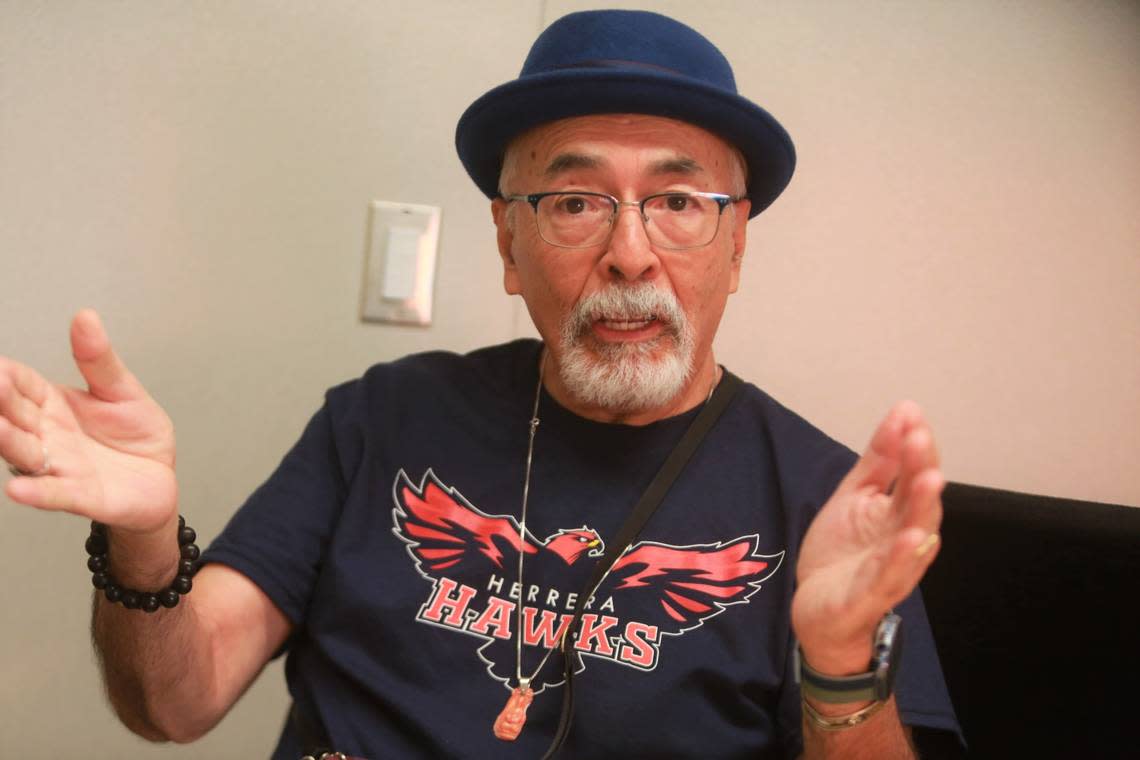
Born in Fowler to farmworker parents, poet Juan Felipe Herrera has dedicated his life to poetry and teaching. He taught Chicano and Latin American Studies at California State University, Fresno and creative writing at the University of California, Riverside.
Herrera served as the poet laureate of California from 2012 to 2015, and of the U.S. from 2015 to 2017. He has written more than 30 books in various genres; his recent books of poems are Every Day We Get More Illegal (2020) and Akrílica (2022), a book in translation.
Awards and honors: Herrera is the recipient of the 2022 Ruth Lilly Poetry Prize; the National Book Critics Circle Award; a Guggenheim Fellowship; the Los Angeles Times Robert Kirsch Award for lifetime achievement; the Latino Hall of Fame Award; a Pushcart Prize; a UCR/LARB Lifetime Achievement Award; a Fred Cody Lifetime Achievement Award, and the UCLA Chancellor’s Medal.
Juan Felipe’s Herrera recommends
Yellow Rain (2021) by Mai-Der Vang about the Hmong experience in the war and its terrible effects.
Books by Lawson Inada, a third-generation Japanese American born in Fresno, whose family was in the internment camps during World War II. Inada’s books include:
Only What We Could Carry (2014) is about the Japanese American Internment Experience
Legends from Camp (1992) are poems that remember and humanize the Japanese-American internment experience for new generations.
On the Road by Jack Kerouac (1976) – a story of two friends whose cross-country road trips are a quest for meaning and true experience. Their journey takes them through the Central Valley.
Books by Maceo Montoya – grandson of Jose Montoya, icon of Chicano poetry, from Fowler. Montoya has published in a variety of genres, art, poetry, history, experiments, including:
Preparatory Notes for Future Masterpieces (2021) – a novel about efforts by a Mexican-American artist to fulfill his vision of painting masterful works of art.
You Must Fight Them (2015) – a doctoral student who is half-Mexican returns to his hometown and tries to reconnect with an old love.
The Deportation of Wopper Barraza (2014) – a novel about the deportation of a man and all the related issues.
Lee Herrick
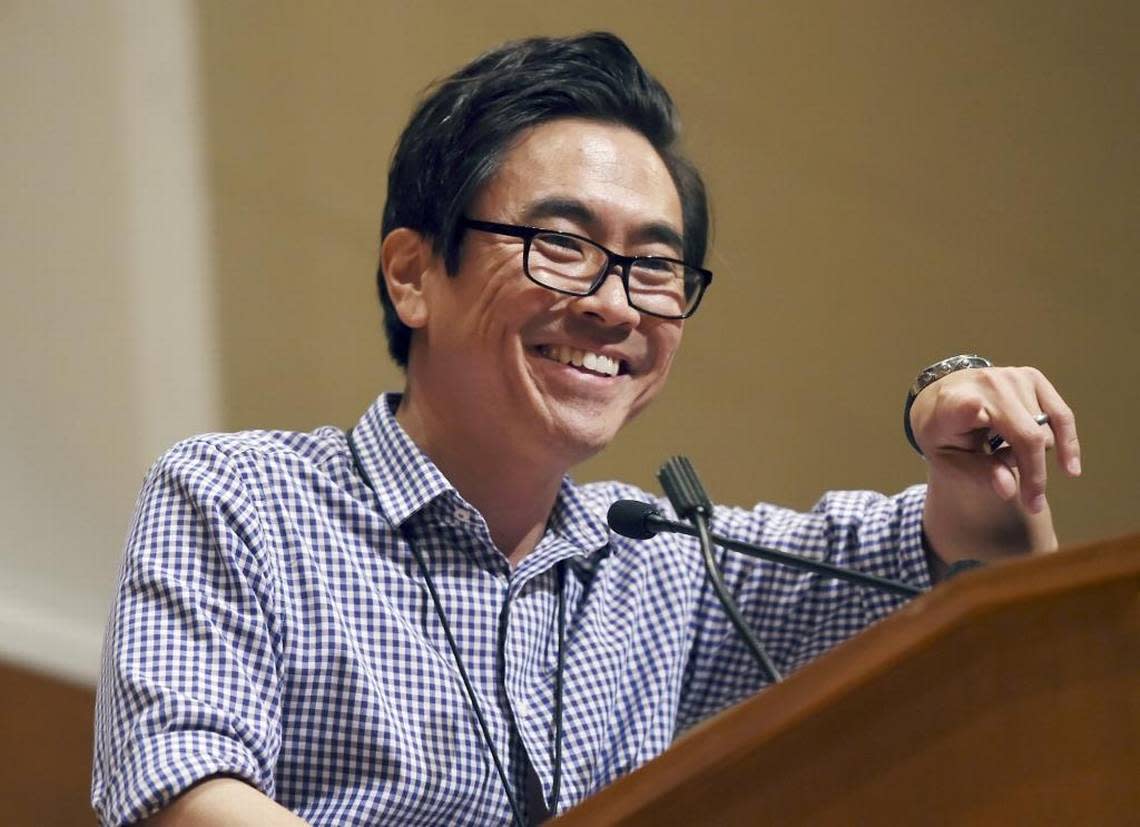
Lee Herrick, newly appointed poet laureate of California, was born in Daejeon, Korea, and adopted to the United States when he was 10 months old. He also served as the Fresno Poet Laureate from 2015-2017.
Herrick teaches at Fresno City College and the MFA Program at Sierra Nevada University, and lives in Fresno. Among his publications are: Scar and Flower (2018), Gardening Secrets of the Dead (2012) and This Many Miles from Desire (2007). He is co-editor of The World I Leave You: Asian American Poets on Faith and Spirit.
Awards and honors: Lee Herrick’s writing has appeared in numerous journals and reviews. He is currently working on his fourth book of poems and a forthcoming memoir. In 2011, Herrick received the Bill F. Stewart Award for Excellence in Education. Gov. Gavin Newsome called Herrick’s work a “Whitmanesque celebration of the best spirit of our state, the vibrancy of the Central Valley, and ourselves,” in his nomination as the state’s poet laureate.
Lee Herrick recommends
Borderland Apocrypha (2020) by Anthony Cody – is about immigration, detention, and survival around the U.S.-Mexico border.
Power Made Us Swoon (2020) by Brynn Saito – poetry that delves into what it is to be human and dealing with adversity.
Every Day We Get More Illegal (2020) by Juan Felipe Herrera, a book of poems on injustices – plight of immigrants, and other social issues.
Yellow Rain (2021) by Mai Der Vang about the Hmong experience in the war and its terrible effects.
Drum Dream Girl (2016) by Margarita Engle – a book that’s inspired by a real life story of a girl who broke Cuba’s traditional taboo against female drummers.
Tremor (2018) by Marisol Baca – a collection of poems about life and death.
The Dreamt Land: Chasing Water and Dust Across California (2019) by Mark Arax – explores the distribution system which was built in the 1940s through the 1960s and how the system is handling California’s growth.
Ultrasonic (2014) by Steven Church – a collection of essays that explore how sound can reveal a deeper meaning beneath the surface of everyday life.
Phantom Tongue (2018) by Steven Sanchez – a book of poems presenting the danger of love, the conflicting beauty in loss, and the power of human striving.
Mark Arax
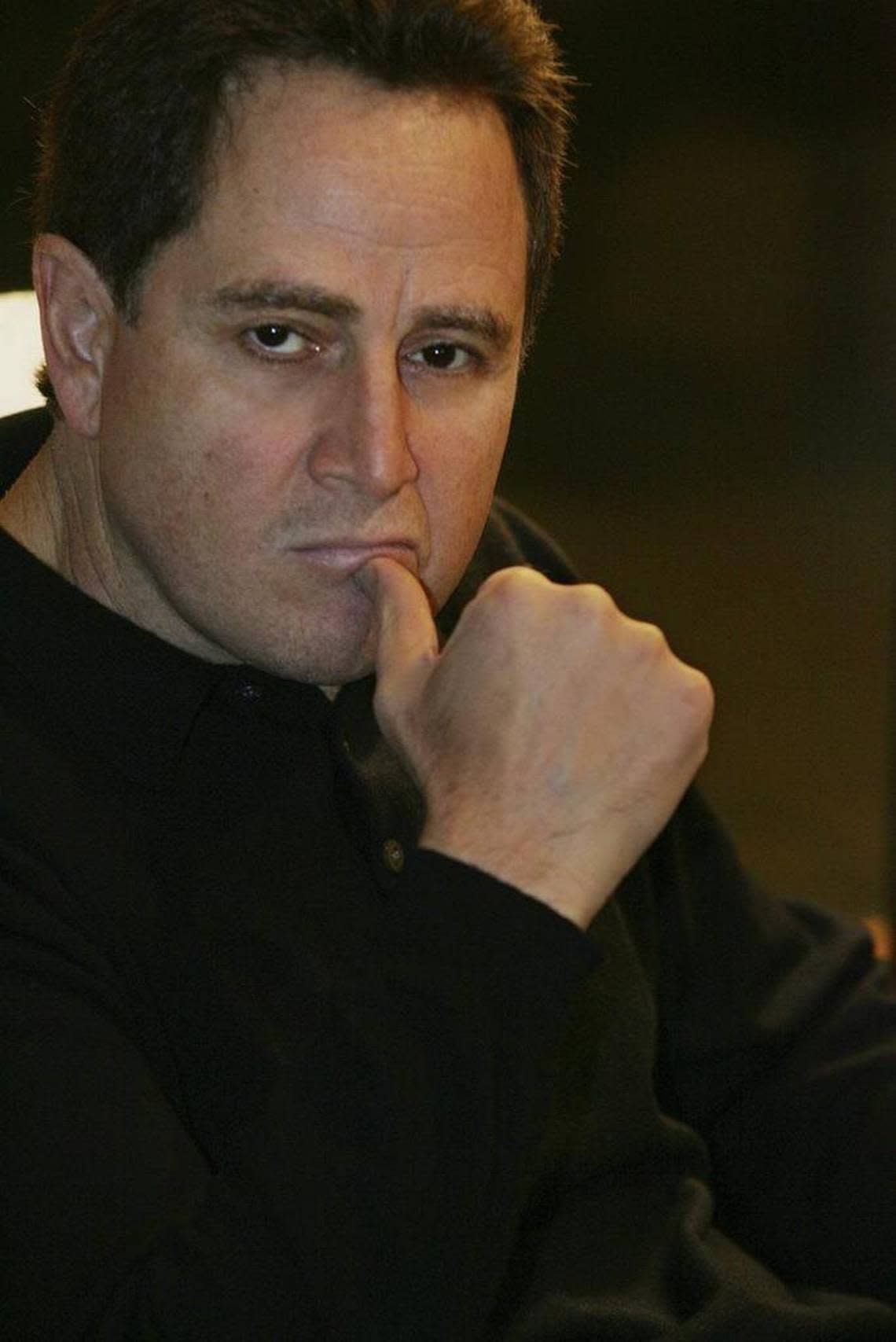
Born to a family of Central Valley farmers with deep ties to the area, Mark Arax’s literary nonfiction writing on California and the West can only come from a writer with a deep understanding of this region.
Arax, a two-time winner of the California Book Award, graduated from Fresno State and Columbia University and worked for the Los Angeles Times where his stories about state sanctioned murder and cover-up in California prisons were lauded as “one of great journalistic achievements of the decade” by The Nation magazine. Arax has taught literary nonfiction at Claremont McKenna College and Fresno State University.
His books include: In My Father’s Name (1997), a memoir of his father’s murder, the best-selling The King of California (2003), West of the West: Dreamers, Believers, Builders, and Killers in the Golden State (2009), and The Dreamt Land: Chasing Water and Dust Across America (2019).
Awards and honors: The King of California, co-authored with Rick Wartzman,was named one of the top 10 books of the year by the L.A. Times and the San Francisco Chronicle and won a 2004 California Book Award and the 2005 William Saroyan International Writing Prize from Stanford University.
Mark Arax recommends
The anthology Highway 99: A Literary Journey Through California’s Great Central Valley (1996), features the works of dozens of authors, including notable authors such as John Steinbeck as well as stories, poems, by less-known Valley residents and the Native Americans.
Shadowboxing: Poems & Impersonations (2017), by Joseph Rios – autobiographical writing centered around a Chicano adolescent working and becoming a poet in the farm territories of Central California.
Yellow Rain (2021), by Mai Der Vang – about the Hmong experience in the war and its terrible effects.
Books by Philip Levine, including The Simple Truth (1996)– poems weaving a complex tapestry of myth, history, family and memory in a search for truths, and My Lost Poets: A Life in Poetry (2016), the last completed book by the late Levine.
Epitaph for a Peach (1996), by Mas Masumoto – a memoir of a critical year in the life of an organic peach farmer.
Factories in the Field (2000) by Carey McWilliams – The Story of Migratory Farm Labor in California.
The Other California (1993), by Gerald Haslam – This collection of essays argues that the Central Valley is California’s heartland and economic hub, despite common perceptions.
Tailholt Tales (1976) by Frank Latta, a collection of recollections about early indigenous settlements in the San Joaquin Valley.
Empire out of the Tules by Brooks Gist, a history of the southern San Joaquin Valley.
Stinger (2019) by Tanya Nichols and Bill McEwen, a fictional tale about family, farming, and business in the Central Valley.
In the Struggle: Scholars and the Fight Against Industrial Agribusiness in California (2021) by Daniel O’Connell and Scott J. Peters details the long history of activism to reign in industrial agriculture in the Central Valley.
Mai Der Vang
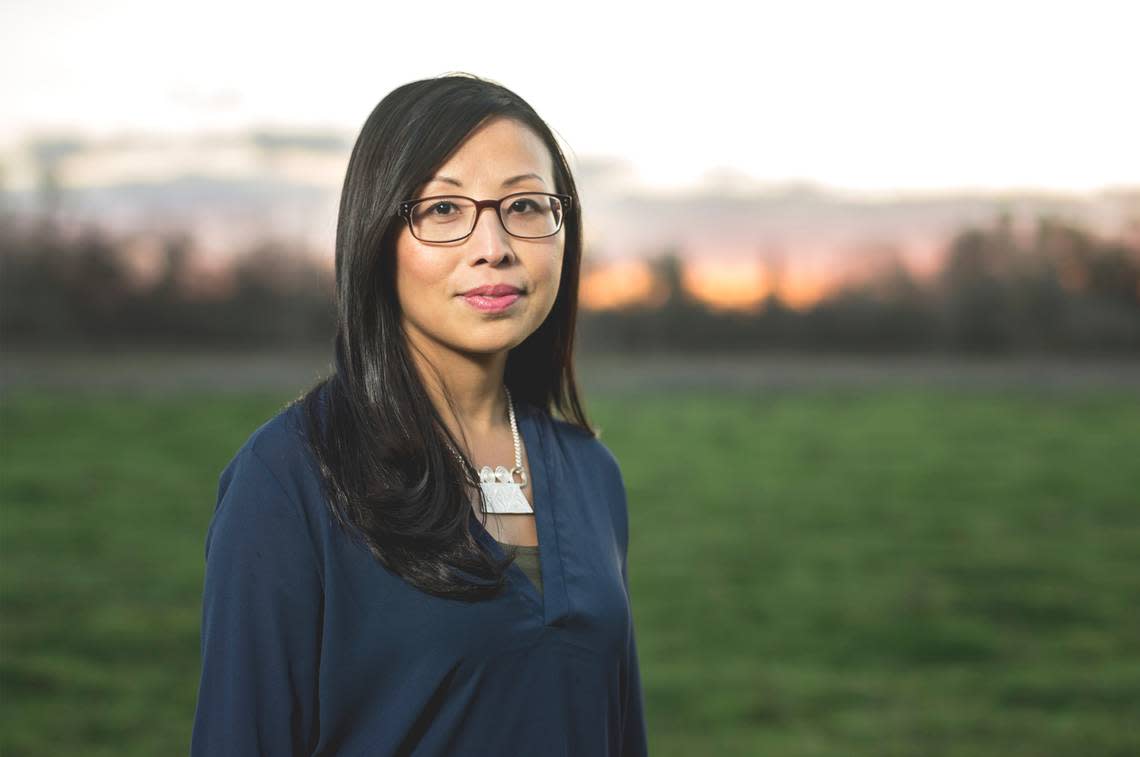
Born in California’s Central Valley, Mai Der Vang is the daughter of Hmong refugees who resettled in the U.S. in the early 1980s, following the United States’ withdrawal from its Secret War in Laos. She earned her BA from the University of California, Berkeley and an MFA from Columbia University.
Mai Der Vang is an assistant professor of English at Fresno State’s College of Arts and Humanities.
Awards and honors: Her book, Afterland, won the 2016 Walt Whitman Award, was shortlisted for the National Book Award for Poetry in 2017, as well as a finalist for the 2018 Kate Tufts Discovery Award. Her book, Yellow Rain: Poems (Graywolf Press, 2021), won the 2022 Lenore Marshall Poetry Prize, the 2022 American Book Award, and was shortlisted for multiple awards, including the 2022 Pulitzer Prize in Poetry.
Mai Der Vang recommends
Borderland Apocrypha (2020) by Anthony Cody – a collection of poems centered on the history of terrors and traumas at borderlands.
The Iceworker Sings and Other Poems (1999) by Andrés Montoya – about the world of machines and violence and abandoned hope.
To Live Here (2014) by Soul Vang – the first full length, single author collection of Hmong American poetry, exploring how to live in new cultures while still retaining his heritage.
Poor Anima (2015) by Khaty Xiong – the first full-length collection of poetry to be published by a Hmong American woman in the U.S.
Heart Like a Window, Mouth Like a Cliff (2019) by Sara Borjas – A book of poems exploring what it means to want to flee the thing you need most.
The Palace of Contemplating Departure (2013) by Brynn Saito – a collection of poetry about stories of sudden departures, forced removals, and the journeys chosen in between.
*Shadowboxing (2017) by Joseph Rios – autobiographical writing centered around a Chicano adolescent working and becoming a poet in the farm territories of Central California.
Furious Dusk (2015) by David Campos – poetry in five parts, tracing a son’s efforts to fulfill his father’s expectations.
Every Day We Get More Illegal (2020) by Juan Felipe Herrera
Joseph Rios
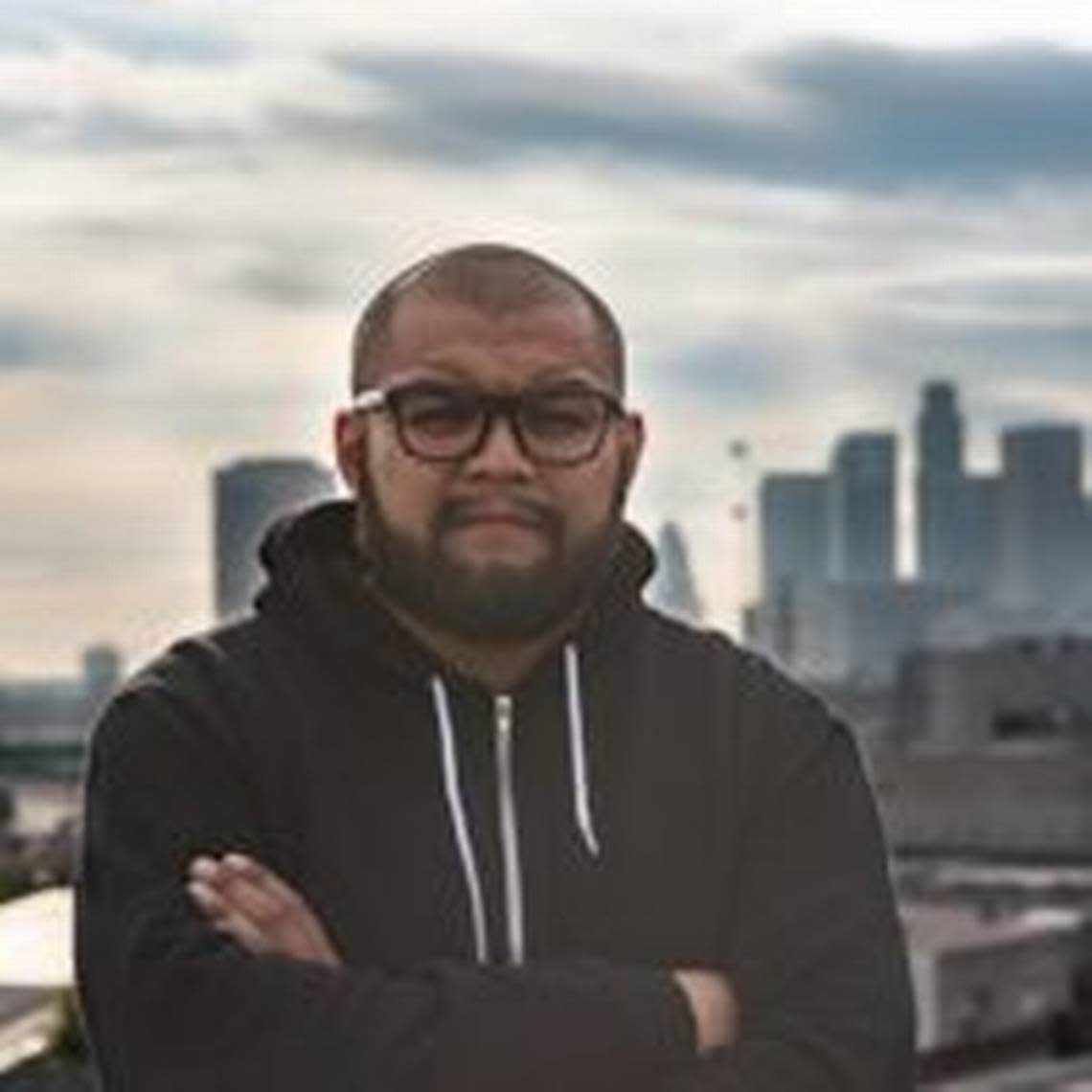
Born and raised in Clovis, California, Joe Rios, author of Shadowboxing: Poems & Impersonations (2017), is a Xicano writer who lives in Fresno, on Yokuts land.
Borrowing the poetic language found in boxing lore and in the “Rocky” films, this autobiographical writing is centered around a central character named Josefo, a Chicano adolescent working and becoming a poet in the farm territories of Central California.
In an interview about his book, Rios told The Munro Review that he wanted “to write something my cousins could be down with, full of inside jokes and references only we would get. Let the poetry world talk about inventiveness and risk, I’ll just say this is how we talk; these are our stories in our native tongue.”
Awards and honors: Rios was the winner of a 2018 American Book Award.
Joseph Rios recommends
Elements of San Joaquin (1977) – Gary Soto – a collection of poetry draws on the San Joaquin Valley – the place, the people, and the hard agricultural work done there by immigrants.
Winter Stars (1985) – Larry Levis – a book of love poems and elegies engaging in a process of self-interrogation about his life, about losses and acceptances.
Parrot in the Oven (1996) – Victor Martinez – a coming of age story of a struggling Mexican American young man.
Local booksellers
If you are purchasing any of these books, please consider doing so from a local bookstore. Here’s information on Yelp’s top-ranked bookstores in the Fresno area.
A Book Barn – 640 Clovis Ave, in Old Town Clovis, Open 9 a.m. to 6 p.m.
Book Nook – 7721 N. First St., Fresno, Open M-F, 10 a.m. to 8 p.m.; Saturday 10 a.m. to 5 p.m.; Sunday 11 a.m. to 4 p.m.
Hart’s Haven Used Bookstore, Open – 950 N. Van Ness Ave., Fresno, Open M-S, 11 a.m. to 4 p.m.; closed Sundays.
Barnes & Noble Booksellers – 7849 N. Blackstone Ave., Fresno, Open M-S, 10 a.m. to 9 p.m.; Sunday 10 a.m. to 8 p.m.
Petunia’s Place – 6027 N. Palm Ave, Fresno, Open Tues-Fri. 10:00 a.m. – 5:30 p.m. Sat. 10 a.m. to 4 p.m.; closed Sunday and Monday.
Danielle Bergstrom contributed to this story. This story was first published in Fresnoland.
